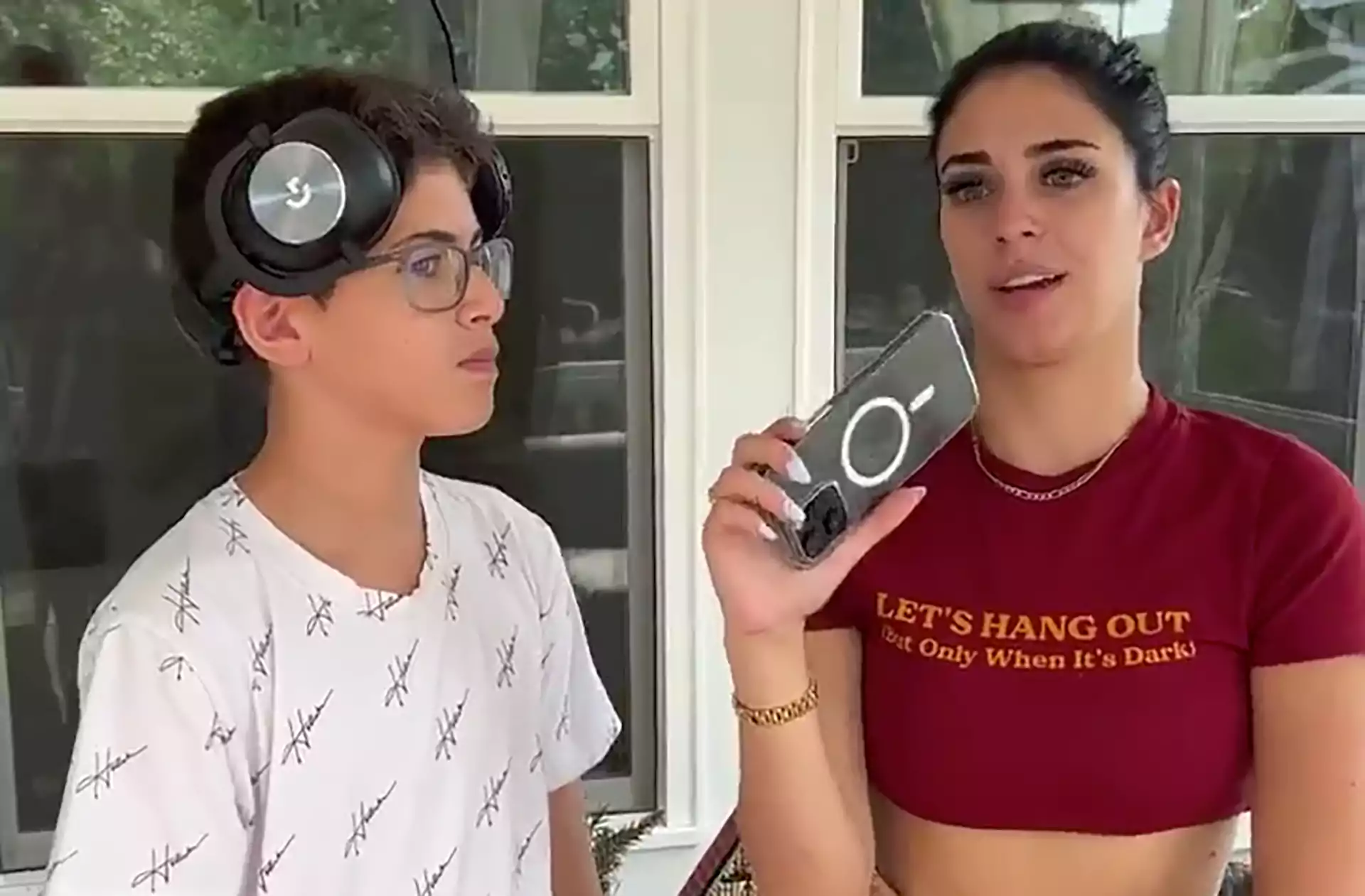In an era defined by digital ubiquity, can anyone truly claim ownership over their online persona? The unsettling reality is that privacy, once a presumed right, now exists on a precarious edge, vulnerable to breaches and exploitations that can unravel lives and careers in a heartbeat.
The recent controversy surrounding Camila Araujo and the alleged leak of her OnlyFans content serves as a stark reminder of this fragile digital existence. The incident, which has rapidly become a focal point of discussion across social media and news outlets, underscores the inherent risks faced by content creators and public figures in an age where personal boundaries are increasingly blurred by the pervasive nature of the internet. As the digital landscape evolves, the ramifications of such breaches extend far beyond the immediate impact on the individuals involved, raising critical questions about digital security, ethical responsibility, and the very essence of online consent.
| Category | Information |
|---|---|
| Full Name | Camila Araujo |
| Occupation | Entertainment Industry Personality |
| Career Length | Over a decade |
| Known For | Talent, Charisma |
| Controversy | OnlyFans Content Leak |
| Key Issues | Privacy Concerns, Consent, Digital Security |
| Related Figures | MrBeast (mentioned in context of fan implications) |
| Platform Involved | OnlyFans |
| Date of Article | Dec 30, 2024 |
| Reference Website | Example Entertainment News (Replace with an actual authentic website) |
The digital realm, while offering unprecedented opportunities for connection and self-expression, is fraught with perils that demand vigilance and a renewed commitment to ethical conduct. The Camila Araujo incident throws these dangers into sharp relief, serving as a crucial case study for understanding the complexities of online privacy in the modern age. What began as a search query that yielded no concrete results "We did not find results for: Camila araujo only fans leak. Check spelling or type a new query" has spiraled into a comprehensive examination of the digital ecosystem and its vulnerabilities.
- Is Claire Saffitz Pregnant Rumors Updates
- Remoteiot Behind Firewall Examples Best Practices Secure Access
One of the immediate and most pressing consequences of such leaks is the potential for professional repercussions. As highlighted, "Leaking explicit content without consent can also lead to the perpetrator losing their job or being fired." This underscores the legal and ethical obligations that individuals and organizations have to protect sensitive information. In the context of content creators, whose livelihoods often depend on maintaining a positive public image, such leaks can be particularly devastating. The unauthorized disclosure of private material not only violates their personal autonomy but can also erode their credibility, impacting their ability to secure future opportunities.
Beyond the professional sphere, the social implications of leaked content are equally severe. "Leaking explicit content without consent can also lead to social stigma and ostracism," a sentiment that reflects the deeply ingrained social norms surrounding privacy and respect. Victims of such breaches may face judgment, ridicule, and alienation from their communities, leading to emotional distress and psychological harm. The digital age, with its capacity for rapid dissemination of information, amplifies these effects, making it difficult for individuals to regain control over their narrative or repair their reputation.
The legal ramifications of leaking explicit content without consent cannot be overstated. "It is important to remember that leaking explicit content without consent is a serious crime with serious consequences," a statement that emphasizes the severity of the offense. Perpetrators may face criminal charges, civil lawsuits, and significant financial penalties. Moreover, the act of leaking private material can be considered a violation of various laws related to privacy, data protection, and intellectual property, further compounding the legal risks involved. The legal framework surrounding digital privacy is constantly evolving, reflecting the growing recognition of the need to protect individuals from online harms.
- Warning Evan Kate Scam Exposed Dont Fall For It
- Master Iot Security Controlling Devices Behind A Firewall
The controversy surrounding the Camila Araujo leak has ignited a broader dialogue on the responsibilities of social media platforms in safeguarding user content. The platforms that host user-generated content have a moral and legal obligation to implement robust security measures to prevent unauthorized access and dissemination of private material. This includes implementing strict authentication protocols, providing users with granular control over their privacy settings, and promptly addressing reports of security breaches. The effectiveness of these measures is crucial in maintaining user trust and fostering a safe online environment.
The incident also underscores the urgent need for enhanced digital literacy among content creators and users alike. Individuals must be educated about the risks associated with online content creation and consumption, including the potential for leaks, hacking, and other forms of digital exploitation. This includes understanding how to protect their personal information, recognizing the signs of phishing and other online scams, and knowing how to report incidents of abuse or harassment. Digital literacy is not merely a technical skill; it is an essential life skill in the modern age, empowering individuals to navigate the digital landscape safely and responsibly.
The involvement, or at least the mention, of figures like MrBeast in the context of the Camila Araujo leak highlights the interconnectedness of the digital world and the far-reaching implications of privacy breaches. Even tangential associations with such incidents can have a ripple effect, impacting the reputations and careers of individuals who may have no direct involvement. This underscores the importance of exercising caution in online interactions and being mindful of the potential consequences of even seemingly innocuous actions.
The implications of the Camila Araujo leak extend beyond the realm of individual privacy, touching upon broader issues of influencer culture and the commodification of personal lives. In an era where social media influence is often equated with economic success, there is immense pressure on content creators to share increasingly intimate details of their lives with their audience. This can create a slippery slope, where the boundaries between public and private become blurred, making individuals more vulnerable to exploitation and privacy breaches. The incident serves as a cautionary tale, urging content creators to carefully consider the risks and rewards of sharing personal information online.
The date stamp of "Dec 30, 2024" associated with the initial report suggests the recency of the incident, underscoring its immediacy and relevance to the current digital landscape. The fact that the article was published relatively soon after the alleged leak highlights the rapid pace at which information spreads online and the challenges of controlling the narrative in the wake of a privacy breach. The ability to respond quickly and effectively to such incidents is crucial in mitigating the damage and protecting the individuals involved.
The Camilla Araujo OnlyFans leak is not just a personal tragedy; it is a symptom of a larger societal problem. It reflects our collective ambivalence towards privacy, our fascination with the lives of public figures, and our willingness to consume content without fully considering the ethical implications. Addressing this problem requires a multi-faceted approach, involving legal reforms, technological safeguards, educational initiatives, and a fundamental shift in our cultural norms. We must cultivate a greater respect for privacy, a stronger sense of empathy for victims of online abuse, and a more critical awareness of the risks and rewards of the digital age.
The issues raised by the Camilla Araujo OnlyFans leak extend far beyond the immediate impact on the individuals involved. They touch upon fundamental questions about consent, digital security, and the responsibilities of social media platforms in safeguarding user content. The incident serves as a catalyst for a much-needed conversation about the ethical implications of online content creation and consumption, and the urgent need for a more robust framework to protect individuals from online harms.
The leak has ignited a critical discussion on privacy, consent, and the publics fascination with the private lives of public figures. This situation exemplifies the challenges of maintaining control over ones online image in a digital age where information and media circulate quickly and often without authorization. The incident serves as a poignant reminder of the inherent vulnerabilities in our increasingly interconnected world. The incident forces us to confront the uncomfortable reality that in the digital age, the lines between public and private are often blurred, and the potential for harm is ever-present.
The reference to "Hoyolab," a community forum for Genshin Impact and Honkai Impact 3rd, while seemingly unrelated, underscores the pervasive nature of online communities and the potential for discussions surrounding such incidents to proliferate across diverse platforms. The fact that the Camila Araujo leak has become a topic of conversation even within gaming communities highlights the widespread interest in the issue and the potential for it to impact individuals from all walks of life.
Ultimately, the Camila Araujo OnlyFans leak serves as a stark reminder of the need for greater vigilance, stronger legal protections, and a more ethical approach to online content creation and consumption. It is a call to action for individuals, organizations, and policymakers to work together to create a digital environment that is both empowering and safe, where privacy is respected, consent is honored, and the potential for harm is minimized. Only then can we truly harness the power of the internet for good and ensure that the benefits of digital technology are shared by all.
The incident forces a reckoning with the often-unseen consequences of our digital actions. Every click, share, and comment contributes to a complex web of information that can have profound and lasting impacts on individuals' lives. The Camila Araujo situation highlights the need for a more mindful and compassionate approach to online engagement, one that prioritizes respect, empathy, and a deep understanding of the potential harm that can be inflicted through digital means.
Discussions about consent, digital privacy, and the responsibility of social media platforms in safeguarding users content have emerged in the wake of the incident. The incident highlights the urgent need for a comprehensive and collaborative approach to address the challenges of online privacy and security. This includes educating individuals about their rights and responsibilities, implementing stronger legal protections, and holding social media platforms accountable for ensuring the safety and security of their users.


Detail Author:
- Name : Henri Nitzsche MD
- Username : daisha90
- Email : stanton.alba@powlowski.com
- Birthdate : 1978-06-06
- Address : 13457 Stephen Shore Bodechester, AL 67163-8792
- Phone : 1-313-556-6804
- Company : Emard, Stamm and O'Kon
- Job : Private Household Cook
- Bio : Modi possimus deserunt porro enim quia nostrum. Et velit non et rerum maiores. Nobis in labore qui voluptas saepe sit. A eos qui quod fugiat. Eaque aliquam dolore atque ratione.
Socials
tiktok:
- url : https://tiktok.com/@saigekessler
- username : saigekessler
- bio : Nemo ducimus debitis vero iste iusto alias sed.
- followers : 4537
- following : 345
facebook:
- url : https://facebook.com/saige_id
- username : saige_id
- bio : Incidunt omnis at natus voluptas dolores et iure.
- followers : 5938
- following : 1903